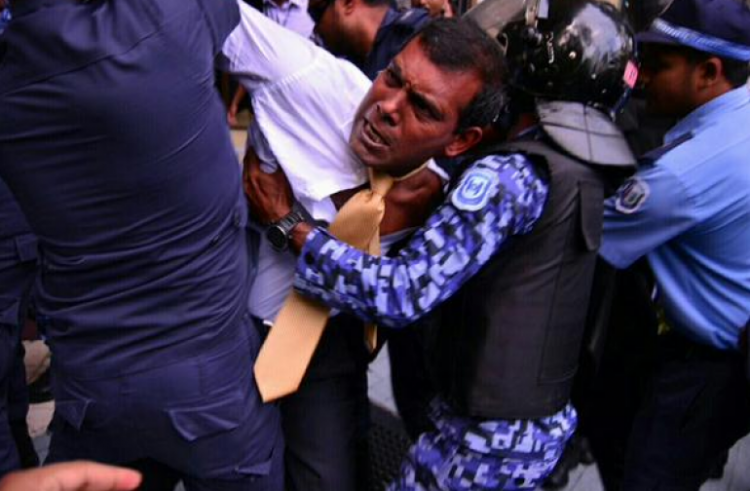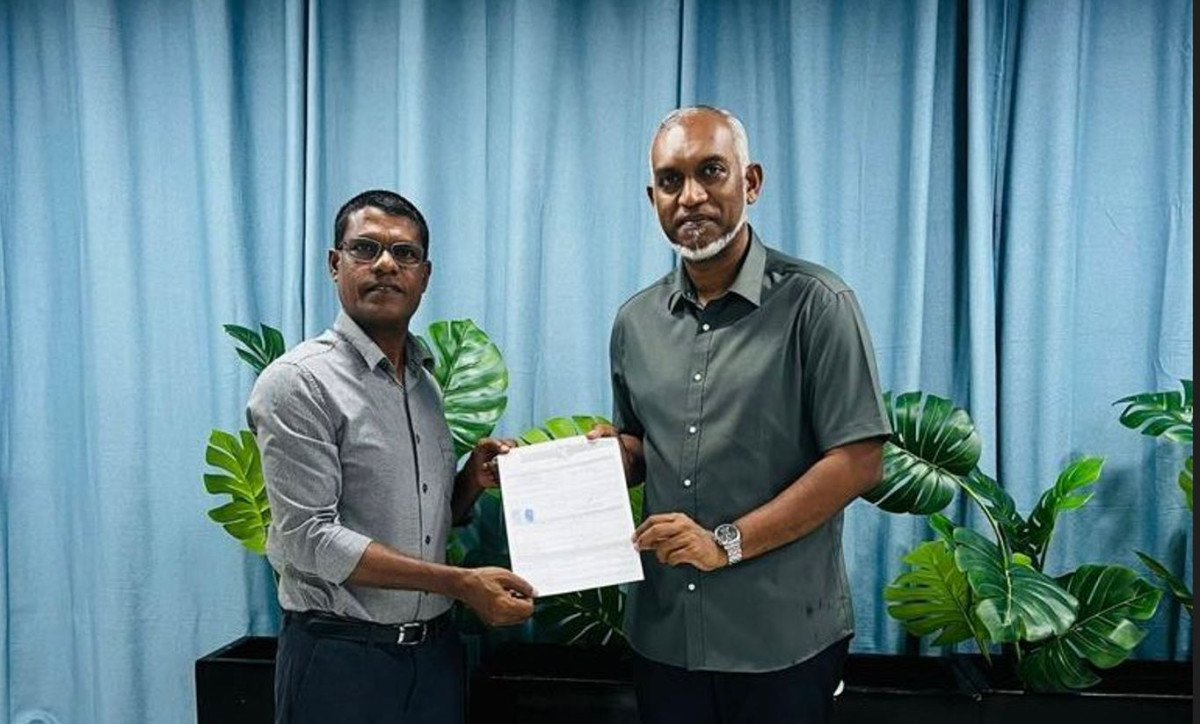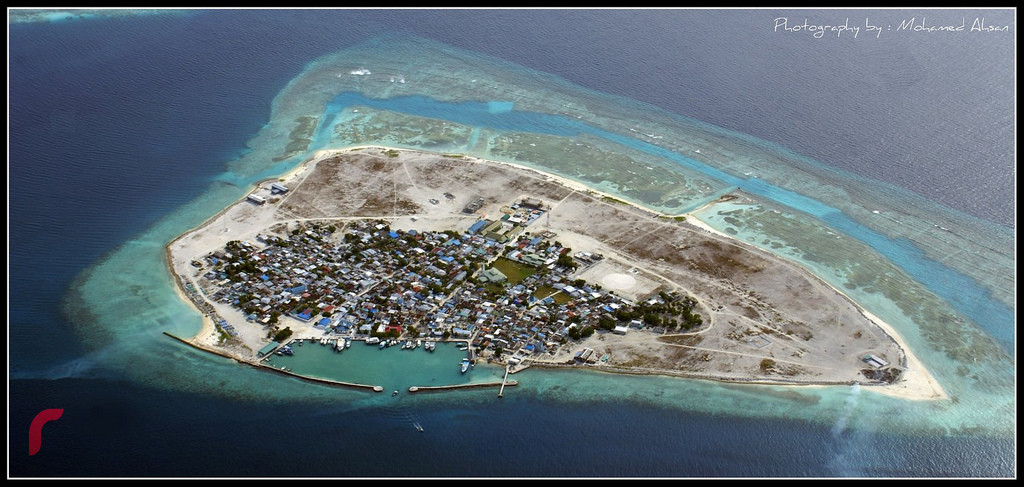Verdict on Nasheed was not written by a Judge, know who wrote the verdict: Adeeb
I was privy to this information as at that time I was serving Tourism Minister

Former President Mohamed Nasheed
Former Vice President Ahmed Adeeb says the verdict on former President Mohamed Nasheed was not written by the Judge of a Court of law and that he knew who had written the verdict.
In a letter sent to Chief Justice Abdullah Saeed on Sunday to Supreme Court, the former Vice President said that the 13-year verdict on Nasheed was a result of Government planning and influence.
‘I’m aware that the 13-year verdict on former President of the Maldives Mohamed Nasheed was a result of Government planning and influence. I was privy to this information as at that time I was serving Tourism Minister of the Maldives and I was party to many developments from within the Government,’ Adeeb’s letter said.
Adeeb said Naseed’s sentencing came after he started his defense of jailed former Defense Minister Colonel (Rtd) Mohamed Nazim, in a bid to end that process.
‘The charges were pressed against President Mohamed Nasheed, after he began a political endeavor, in defense of former Defense Minister Colonel Mohamed Nazim, following his arrest. The charges were raised to bring an end to this process,’ Adeeb said.
Adeeb said the verdict on President Nasheed was not written by any sitting Judge. Noting that he knew who had penned the verdict, Adeeb said the ‘first draft’ of the verdict spelled a 10-year verdict, with a three-year suspended sentence. He added that he knew who had changed the initial verdict and on whose orders, it was done so.
‘As such, I know that the verdict was not written by the sitting Judge and who had prepared this verdict. The first draft of the verdict sentenced President Mohamed Nasheed to a 10-year jail term, with a three-year suspended sentence. However, the initial sentence was changed to 13 years and I know who had changed the verdict and on whose orders it was carried out under,’ Adeeb said.
Adeeb added that he had enough evidence to show that the verdict on President Nasheed was powered by influence and interference into the Judges bench and the entire judicial justice system. If given the opportunity, Adeeb said he was prepared to present this in Supreme Court.
‘I have enough evidence to prove that the sentence on President Mohamed Nasheed was a result of influence and interference into the Judges bench and the entire judicial justice system. If the Supreme Court grants me the opportunity to do so, I’m ready to present this in Court,’ Adeeb said.
He noted that he believed that in the event, evidence surfaces proving sentences were influenced by an individual or was an unconstitutional verdict, the Supreme Court had a responsibility to review the case again.
‘I believe that in the event an individual had been sentenced unconstitutionally or the judiciary is under compulsion, even if it is after the judicial processes are concluded, Supreme Court has a responsibility to review the case,’ Adeeb said.
Adeeb’s letter had requested to review President Nasheed’s verdict and to give him an opportunity to present himself in Court.
‘Therefore, I request the Court to review the verdict on President Mohamed Nasheed and give me an opportunity to present myself in Court for the hearings,’ Adeeb noted.
The same sentiments over former President Mohamed Nasheed’s verdict had been echoed by Mohamed Hussain, a close associate of Adeeb, in the Al-Jazeera produced documentary, ‘Stealing Paradise’.
Hussain, in the documentary, said that Adeeb had contacted him on the day of the sentencing on President Nasheed. Adeeb had instructed him to retrieve a document from an individual. Hussain reported the document was not in an envelope and, upon reading it, he said he was aware that it was the verdict on President Nasheed.
Hussain said he had delivered the letter to Adeeb. At that time, Hussain said that Adeeb had begun to laugh and immediately contacted President Abdullah Yameen Abdul Gayoom. Hussain testified that President Yameen said the verdict must be changed.
Judges Abdul Baaree Yoosuf, Abdullah Didi and Shujau Usman had presided over the bench that reviewed the case on President Nasheed. Judge Abdul Baaree Yoosuf was recently transferred to Juvenile Court. Judges Abdullah Didi and Shujau Usman were promoted to High Court days after President Nasheed was sentenced.
President’s Office had denied the statements made by Hussain regarding the verdict on President Nasheed, who had during his tenure as President detained then-Criminal Court Judge Abdullah Mohamed in Girifushi island under Army custody.






